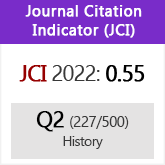Fear of the Iberian Atlantic navigation, 15th - 16th centuries
DOI:
https://doi.org/10.3989/ceg.2013.126.06Keywords:
fear, navigation, atlantic, iberianAbstract
During the first iberians atlantic travels, first along the african coast and then towards the western horizon, diverse fears manifested as a result of, on the one hand, the sense of danger that the own marine extension provokes, the beings inhabiting it and the weather events happening there, and on the other, of the knowledge of ancient philosophers, myths and christian beliefs that related the sea with the hell, sin, and death. In this sense, the fears were not only answers to certain external or internal stimulation, but they also were cause and consequence of cultural and ideological constructions toward the natural world. Through the discourse analysis of diaries, chronicles and literary narratives of the epoch, different fears that surprised those sailors are analyzed: the long distance to land; the thirst, hunger and disease suffering; the encounter with pirates or mermaids; as well as those related to the possibility of the ship loss: breakdowns, bad navigations, storms, shipwrecks, but also ominous signs from the other side that put to test the faith of the most devotee. However, despite the dangers, the sailing nations faced the fears motivated by the desire to overcome the adversities and survived the transatlantic travel helped by technology, but above all, hope.
Downloads
References
Acosta, Joseph de, Historia Natural y Moral de las Indias, Tomo Primero, Madrid, Pantaleón Aznar, 1792.
Augeron. Mickaël y Mathias Tranchant (comps.), La Violence et la Mer dans l’espace atlantique (XIIe-XIXè siècle), Collection Histoire, Presses Universitaires de Bennes, 2004.
Bourke, Joanna. “Fear and anxiety: writing about emotion in Modern History”, History Workshop Journal, 55 (2003), págs. 111-133.
Casas, Bartolomé de. El libro de la primera navegación y descubrimiento de las Indias (Biblioteca Nacional de España, Sección de Manuscritos, Vitrina 6, número 7). Biblioteca Digital Hispánica [en línea], disponible en <http://bibliotecadigitalhispanica.bne.es/view/action/nmets.do> [Consulta: marzo 2013] .
Historia de las Indias (Biblioteca Nacional de España, Sede de Recoletos, Sala Cervantes, Fondo Antiguo, MSS/2812 V. 1, 2 y 3). Biblioteca Digital Hispánica [en línea], disponible en <http://bibliotecadigitalhispanica.bne.es/view/action/nmets.do> [Consulta: marzo 2013].
Corbin, Alain y Hélène Richard, El mar. Terror y fascinación, Barcelona, Paidós, 2005.
Cervantes, Miguel de, “El amante liberal”, Obras Selectas, Madrid, EDIMAT, 2000.
Colón, Cristóbal, Textos y documentos completos (comp., pról. y notas de Consuelo Varela), Madrid, Alianza Universidad, 1982.
Covarrubias, Sebastián de, Tesoro de la Lengua Castellana o Española [1611], Barcelona, Horta, 1943.
Delumeau, Jean, El miedo en Occidente (siglos XIV-XVII). Una ciudad asediada, Madrid, Taurus, 1989.
Domínguez, Vicente, “El miedo en Aristóteles”, Psicothema, vol. 15, núm. 4 (2003), págs. 662-665 [en línea], disponible en <http://psicothema.com> [Consulta: 03/08/2009] .
Favier, Jean, Los grandes descubrimientos. De Alejandro a Magallanes, México, Fondo de Cultura Económica, 2004.
Fernández de Oviedo, Gonzalo. Historia General y Natural de las Indias V (estudio preliminar de Juan Perez de Tudela Bueso), Tomo CXXI, Libro L, Madrid, 1992.
Gil Fernández, Luis, Los Studia Humanitatis en España durante el reinado de los Reyes Católicos, Universidad Complutense de Madrid, [en línea], disponible en <http://ler.letras.up.pt/uploads/ficheiros/2957.pdf> [Consulta: 11/05/2008] .
Gomes de Brito, Bernardo, Historia Trágico-Marítima, México, Espasa-Calpe, 1948.
González Barcia, Andrés (comp.), Historiadores primitivos de las Indias Occidentales, tomo I, Madrid, 1859.
Jáidar Matamoros, Isabel (comp.), Los dominios del miedo, Área Subjetividad y Procesos sociales, México, UAM-XOCHIMILCO, 2002.
Martínez, José Luis, Pasajeros de Indias. Viajes trasatlánticos en el siglo XVI, México, Fondo de Cultura Económica, 1999.
Mollat Du Jourdin, Michel, Europa y el Mar. La construcción de Europa, Barcelona, Crítica, 1992.
Moya Sordo, Vera, “Miedo en el navío inestable. Navegaciones atlánticas hispánicas, siglos XV-XVII”, en Traversea: Journal of Trasatlantic History, vol. 2 (2012), págs. 116-130 [en línea], disponible en <http://www.uta.edu/history/traversea/ojs/index.php/traversea/article/view/28>
Nicholl, Charles, Leonardo. El vuelo de la mente, Madrid, Taurus memorias y biografías, 2005.
Otte, Enrique, Cartas privadas de emigrantes a Indias, 1540-1616, México, Fondo de Cultura Económica, 1996.
Ordenanzas del buen gobierno de la armada del mar océano (24 de enero de 1633), Madrid, Instituto Histórico de Marina, 1974.
Pérez-Mallaína, Pablo Emilio, Los Hombres del Océano. Vida cotidiana de los tripulantes de las flotas de Indias, Siglo XVI, Sevilla, Servicio de Publicaciones de la Diputación de Sevilla, 1992.
Pigafetta, Antonio, Relación del primer viaje alrededor del mundo. Noticias del mundo nuevo con las figuras de los paises que se descubrieron señalados, España, Red ediciones, 2011.
Pralon-Julia, Dolores, “Una teoría del miedo en el siglo XVII: el De metu… de Cabreros de Avendaño”, Criticón, núm. 23 (1983), pág. 6 [en línea], disponible en <http://cvc.cervantes. es> [Consulta: 19/08/2009] .
Soler, Isabel, El nudo y la esfera. El navegante como artífice del mundo moderno, Barcelona, El Acantilado, 2003.
Vega, Lope de, La Dragontea, España, Museo Naval, Ministerio de Marina Español, 1935.
Downloads
Published
How to Cite
Issue
Section
License
Copyright (c) 2013 Consejo Superior de Investigaciones Científicas (CSIC)

This work is licensed under a Creative Commons Attribution 4.0 International License.
© CSIC. Manuscripts published in both the printed and online versions of this Journal are the property of Consejo Superior de Investigaciones Científicas, and quoting this source is a requirement for any partial or full reproduction.All contents of this electronic edition, except where otherwise noted, are distributed under a “Creative Commons Attribution 4.0 International” (CC BY 4.0) License. You may read here the basic information and the legal text of the license. The indication of the CC BY 4.0 License must be expressly stated in this way when necessary.
Self-archiving in repositories, personal webpages or similar, of any version other than the published by the Editor, is not allowed.
















